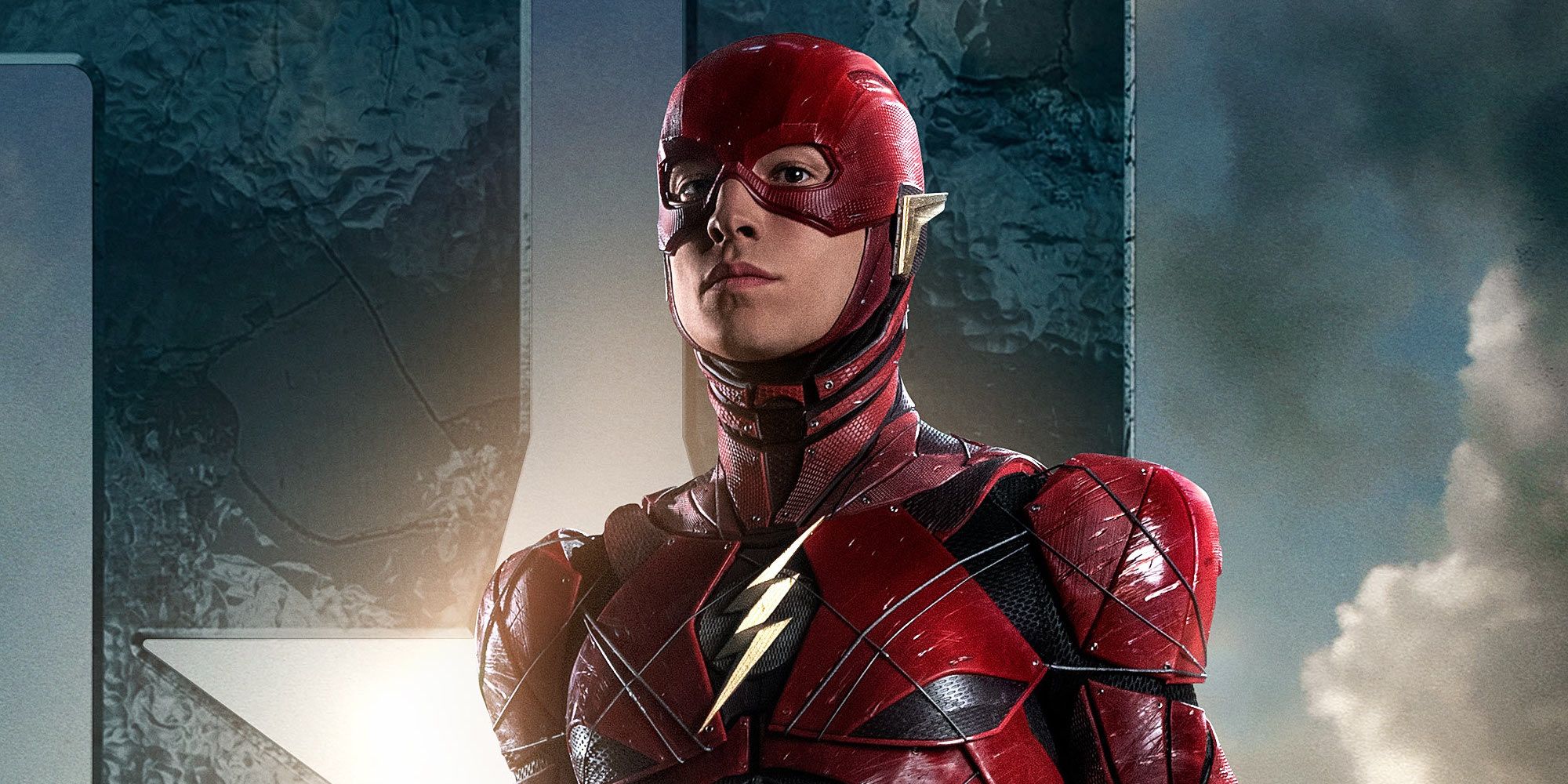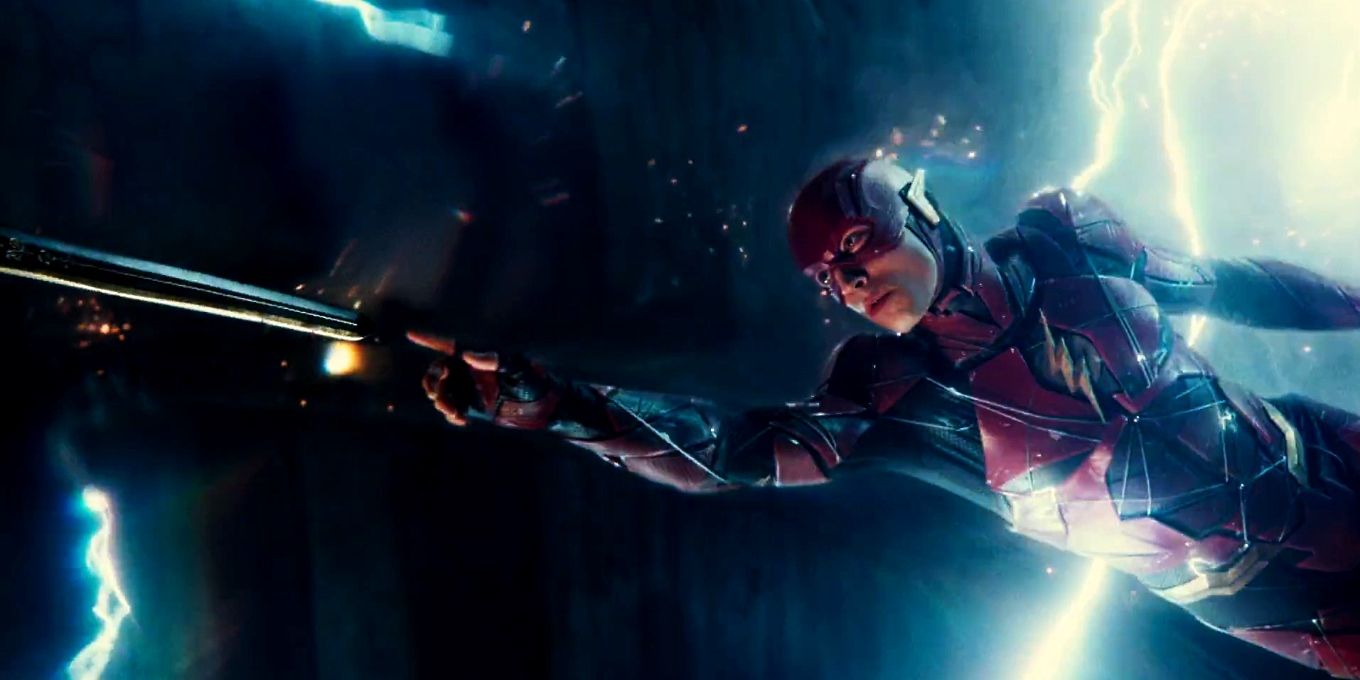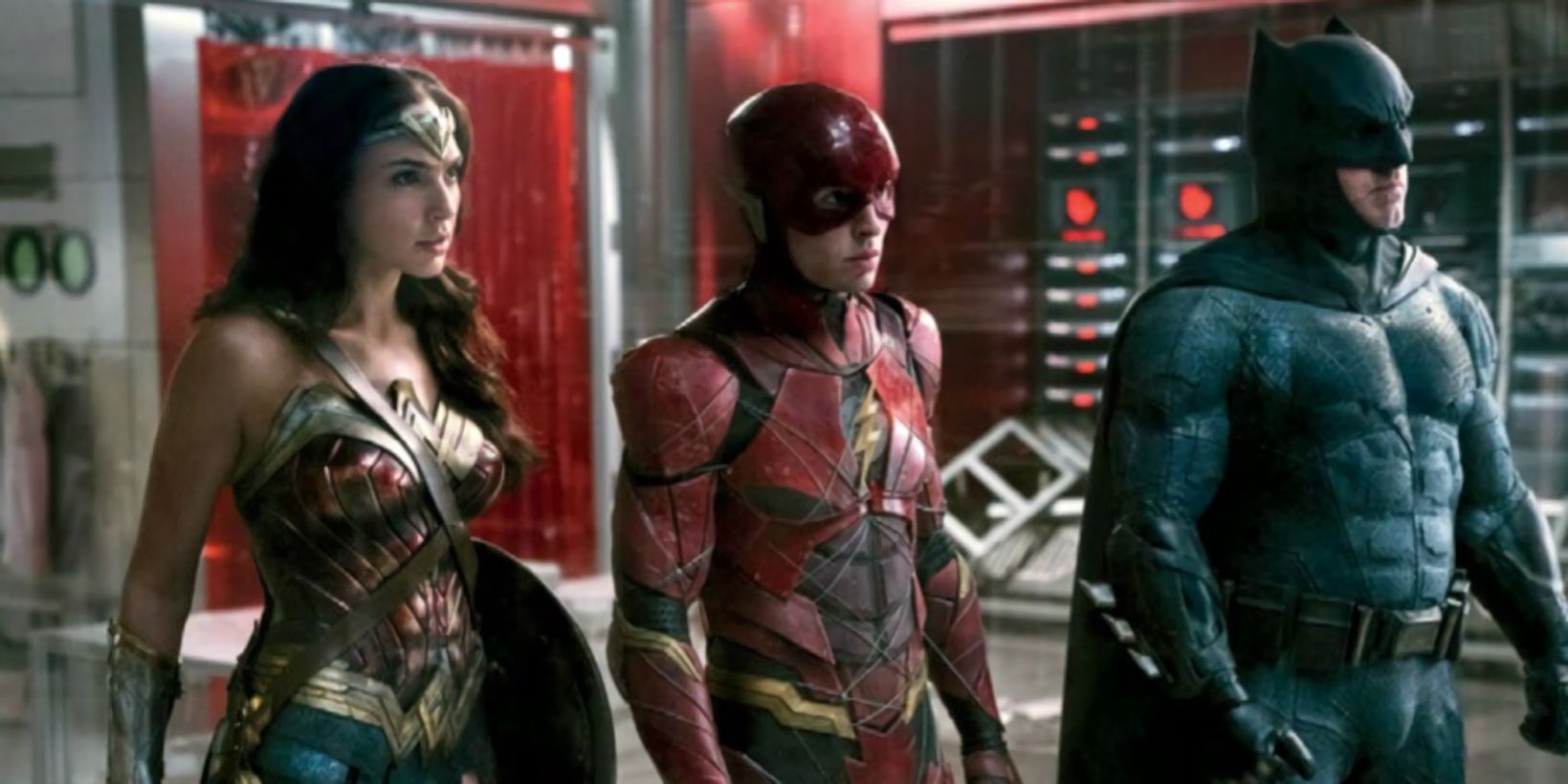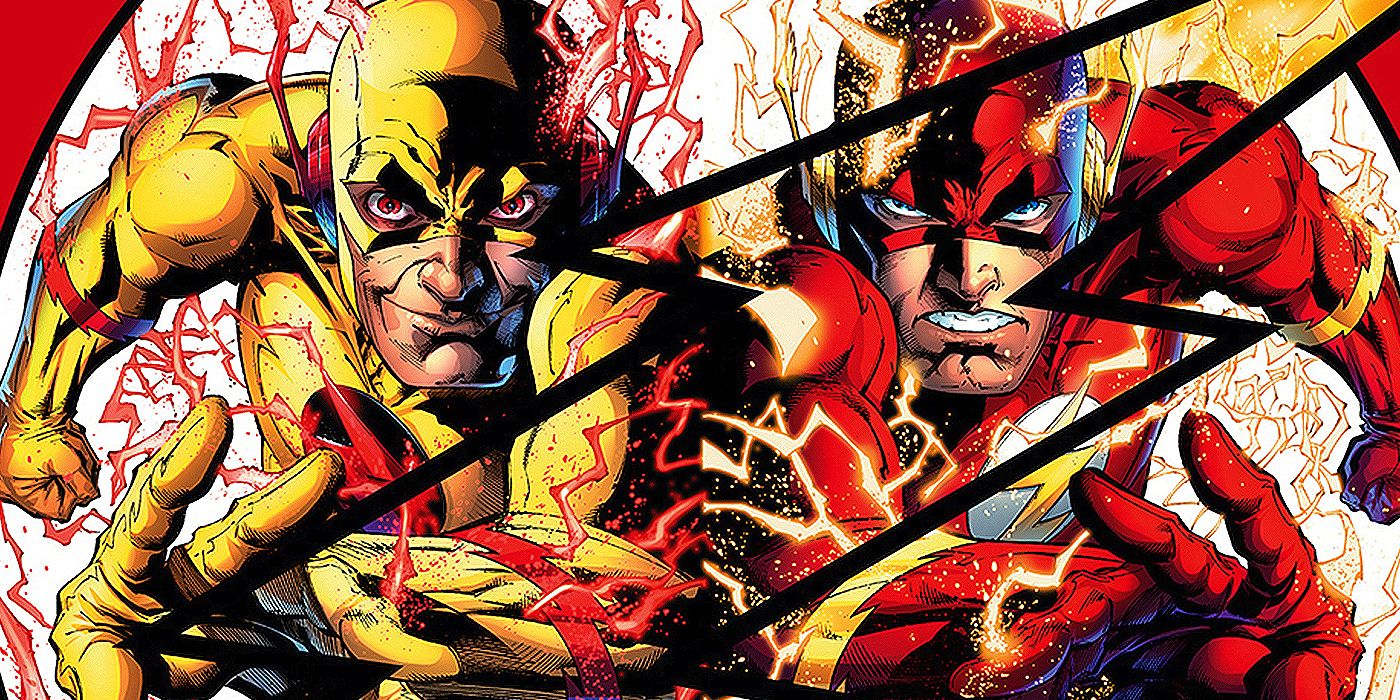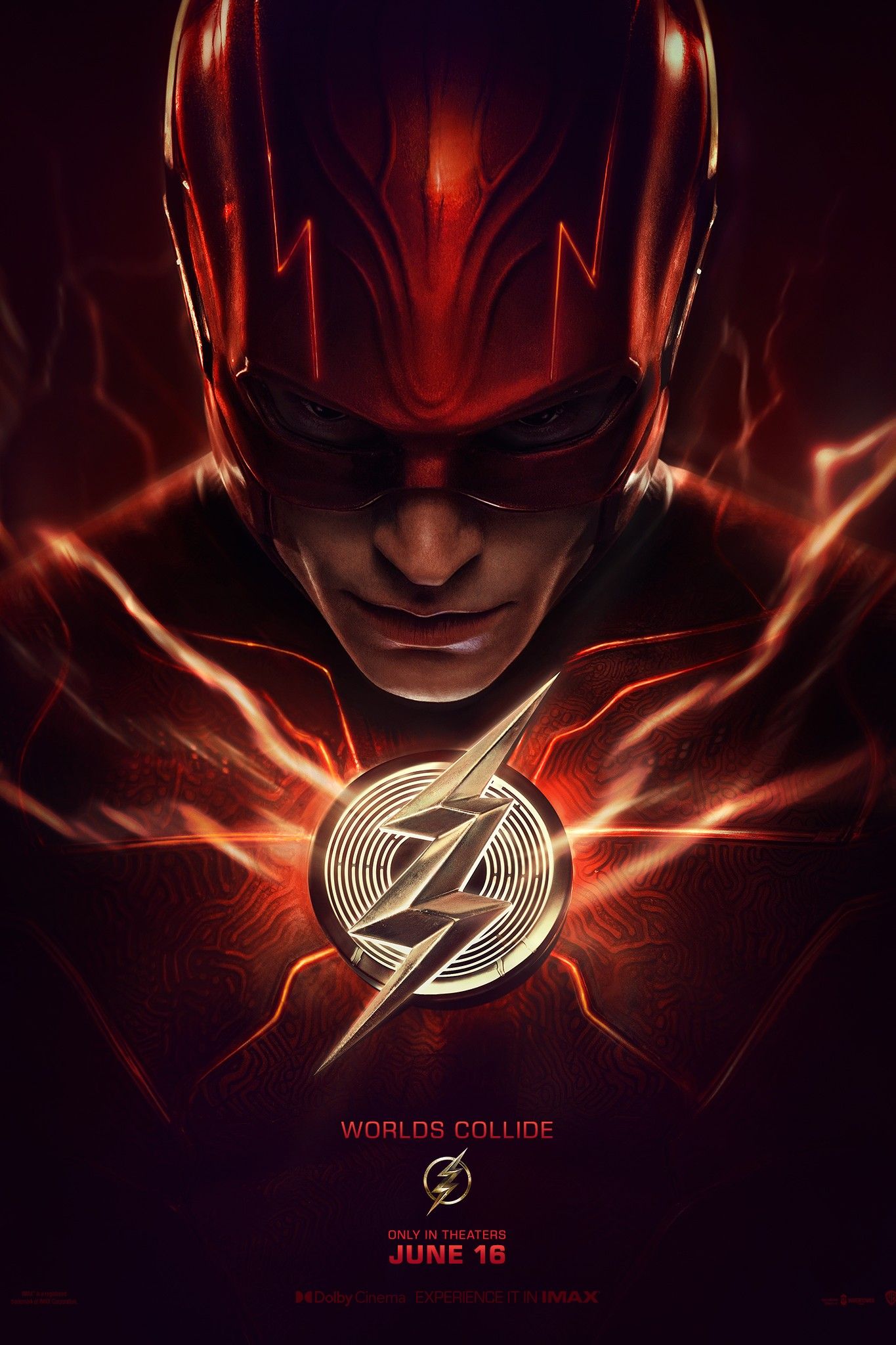The new version of The Flash may make his solo movie debut in Flashpoint - but claims that the film's title means a reboot of the entire DCEU is on the way... are most likely wishful thinking. It's more than a little confusing to casual fans, or those not up to date on Flash comics in particular. But no sooner had the title been revealed in a montage of WB's coming superhero movies, fans, bloggers, that pundits raised the word as PROOF that after facing critical beatings with regularity, the DCEU was finally going to be remade - and 'right' this time.
The truth is far from that simple, and considering that the DCEU is now being shaped on the basis of individual films and creators, there are several reasons why Flashpoint is unlikely to be the same kind of reboot as the comics. And that's assuming that the actual function and meaning of the Flashpoint comic event is what some are claiming... which isn't entirely accurate, either.
So to those who like the DCEU, or simply DC Films's approach, allow us to explain why a full scale reboot in the form of one movie seems like more than a longshot.
It's an Unnecessary Change - That DC Shouldn't Make
It's worth pointing out that at this point, The Flash movie is both officially and unofficially without a writer or director, let alone one who would take the job knowing that it won't entail a contained story doing Barry Allen justice, but a universe-altering leap into complicated mythology. Before we get into the challenges of that on a fictional level, om a philosophical level, it goes against the way that DC Films has done business to this point. Boasting a creator-driven approach, the studio has allowed writers and directors to pursue their own vision - as some might argue, a level of freedom that gives creatives all the room they need to fail.
Some might see that fact alone as the very reason that DC Films should change their patterns, and adopt one closer to Marvel. In this case, allow Geoff Johns to pursue the creative vision for the universe as a whole as executive producer, and hire writers or directors to execute that vision as they wish (to a point). There's two problems with that: 1) the DCEU movies having freedom to NOT directly tie from one to the next has proven successful with Wonder Woman, and 2) Johns made his name at DC by inspiring creators to tell faithful stories that mattered to them. Johns also comes from the comic book world, where a company mandate, event, or any other restrictions on creative expression taking freedom from writers and artists is universally accepted as the WRONG way to build a universe.
Finally - avoiding the fact that a large part of this theory is arguably based on critics and pundits believing a $3 Billion series of movies is bound to reshape itself into a more popular style - there's the fact that this plan would go against DC's strategy of allowing director Patty Jenkins to tell the Wonder Woman story she always wanted to, free from shared universe pressures. With Wonder Woman a critical and box office grand slam... it's a strange time to start missing the point.
It Would Sabotage The First Flash Movie
As we mentioned before, the director and writer tapped for The Flash will have enough of a challenge simply getting Barry Allen right. Ezra Miller's humor and charm on display in the Justice League trailer convinced many skeptics already, but the bulk of explaining and exploring his connection to the Speed Force will almost certainly fall to his own cinematic adventure. That can't be underestimated, either, especially by fans of The CW's Flash who believe "most people get it by now." First off, the powers themselves could be completely different (the movie lightning and motion suggests so). But more importantly, DC Films is going to need a LOT more people than The Flash's TV audience to turn out, enjoy, and understand the movie and its hero's powers.
Now take those challenges, including the story introduced in Barry's Batman V Superman cameo and still to come in Justice League, and add in the task of explaining how the events in THIS film will be forever undoing, changing, and replacing the heroes and reality established in five or more films... and you've got a hurdle that only a fool would try to overcome. The casual audiences who will likely forget the intricacies of the film in the months before other writers and directors are asked to scrap the characters and universe audiences now know, while the diehard have the right to claim that DC is throwing away everything they've built instead of adjusting as they go.
The Flash's first solo movie would bear that burden on its shoulders, taking a character winning over fans as the comedic heart of the Justice League, and subjecting him to one of the most devastating and hopeless storylines Geoff Johns ever wrote. Not to mention, if rebooting the DCEU as some suspect, risking that you'll miss the point of Flashpoint altogether.
That's Not Actually The Point of Flashpoint
The way in which a Flashpoint movie would actually be used to reboot the DC Movie Universe is easy to see, since it's a story of Barry Allen using time travel to permanently change his history. For those who never read the series or forget the premise, it began with Barry Allen waking up to find that his mother was no longer killed in his childhood, nor was his father locked up for the act. But he also found his powers gone, the love of his life seeing someone else, and the heroes of the world twisted into darker, more tragic figures ready to end the world in a massive war. It's then that his villain, Reverse-Flash arrives to reveal that he didn't make this nightmare real... Barry did. By saving his mother, he doomed the world, and forfeited his powers.
So on the surface, a story in which Flash makes the DC Universe into something new seems capable of "fixing" the DCEU (despite Geoff Johns, the one who would be implementing this plan stating that the DCEU didn't need to change). But the story is about the one time Barry was selfish, and made the world a nightmare of darkness and paranoia - only to try to set things right, realizing that getting things back to the way they were and accepting it was more important than "fixing" it by his own standard. The result was a rebooted universe that was largely seen as a mistake by both readers and dc editorial.
Setting aside the risks to story, characters, and emotional investment being thrown out the window and literally 'undone,' if the outcome of Barry's Flashpoint story is a net positive - if the DCEU is rebooted into the brighter, more optimistic tone critics think it should be - then the entire meaning of Flashpoint is dismissed. The Flash's movie would either fail dramtically or narratively, confusing fans instead of embracing the adventure possible in a Flashpoint story in which Barry tried to get back to the world he changed - and just as he's finally got some Justice League friends.
-
Wonder Woman already showed that writers and directors can make small, explainable changes to characters or back stories from one film to another. So if a Flashpoint reboot of the DCEU raised the challenges of making a good movie, all in the name of making small changes that could simply be introduced in the coming years... It's hard to see why DC films would ever want to do it.

